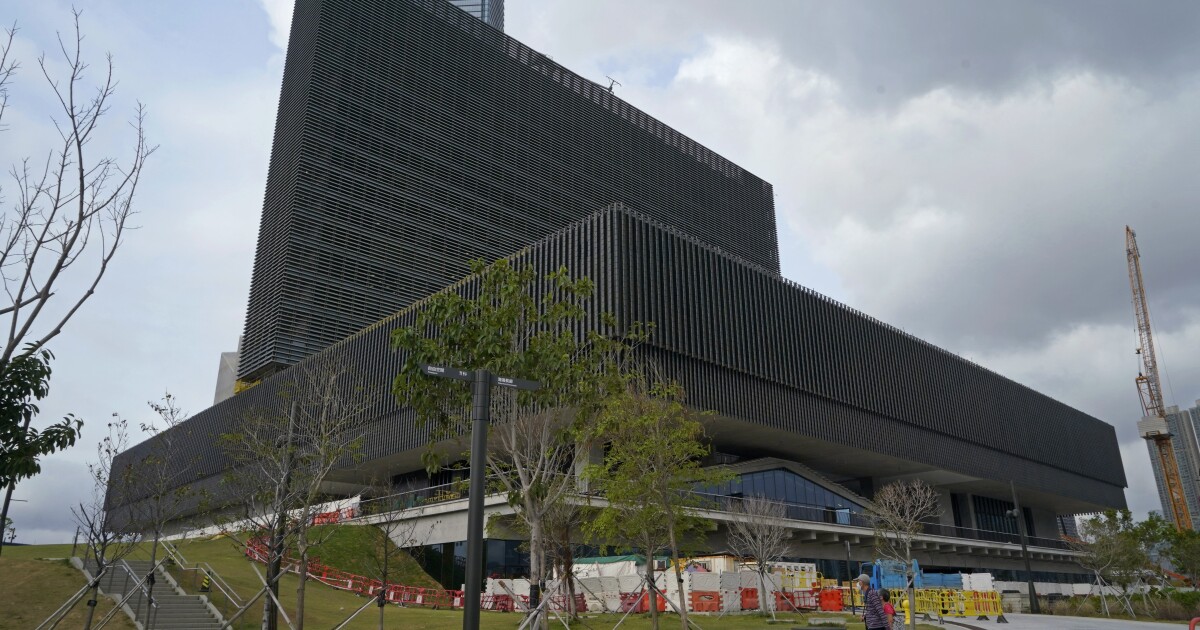The decision in Hong Kong not to display a politically controversial photograph in a museum exhibit and not broadcast the Academy Awards for the first time in decades has led to fears over Beijing’s control against dissent in the city that could be spreading. to the arts and entertainment.
Hong Kong authorities have cracked down on the opposition after Beijing imposed a national security law on the city, arresting top pro-democracy activists and participants in anti-government protests in 2019.
Announcements about the Oscars and photography emerged as China’s legislature began deliberating to update Hong Kong’s electoral laws that would give the committee dominated by Beijing loyalists more power.
Henry Tang, director of the West Kowloon Cultural District Authority, told a news conference on Monday that there are no plans for a photo of dissident Chinese artist Ai Weiwei to be displayed at the opening of the city’s new M + museum. displaying his middle finger in Tiananmen Square in Beijing.
The decision sparked fears that the security law will not only be used to silence dissidents, but to intervene in freedom of expression and art.
Tang dismissed suspicions that the museum was under pressure to remove the photograph, saying there were never plans to include it.
“We had never planned for that photograph to be included in the inaugural exhibition, so there is no question whether we have withdrawn it or that we have succumbed to pressure and changed it,” Tang said.
“If any of our works, if any of our actions contravene that law, I am sure that the authorities will contact us and we will fully cooperate with them,” he said.
Artist Ai was not currently available to comment on the case.
This month Hong Kong leader Carrie Lam said authorities were on “full alert” to ensure exhibitions in the city did not violate national security law. Pro-Beijing lawmakers have said that some of M + ‘s works are politically sensitive and could be against the law.
On the other hand, public broadcaster TVB confirmed on Monday that it will not broadcast this year’s Academy Awards, something that had not happened in decades.
A report by a local newspaper, The Standard, suggests that critical remarks about China previously made by Beijing-born director Chloe Zhao, nominated for “Nomadland,” as well as the nomination of a short documentary on the protests in Hong Kong could be related to the decision not to broadcast the ceremony this year.
“TVB does not have the broadcast rights for the 2021 Oscars. It was simply a business decision that we chose not to pursue the Oscars this year,” TVB said in a statement.
Zhao’s old comments in which he appeared to criticize China sparked a scandal in the country. Searches for “Nomadland” were blocked on the Chinese internet, which is heavily censored and filtered to remove content that the government considers politically sensitive.
The Academy of Motion Picture Arts and Sciences, which represents the awards, did not immediately respond for comment.
In Beijing, proposed changes to Hong Kong’s electoral system were presented to a commission of the National People’s Congress in its first session on Monday, the Xinhua news agency said.
Under the proposals, a committee that elects the leader will change and the committee will have the power to elect a greater number of legislators. The changes are expected to reduce the proportion of lawmakers elected by direct vote, although details have not been disclosed.
___
Associated Press reporter Juwon Park in Seoul, South Korea contributed to this report.
–


